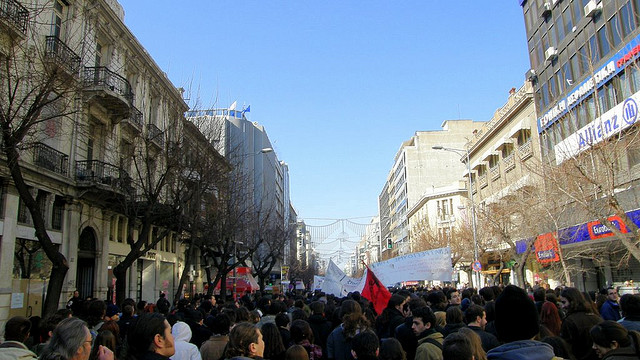10 Ways the Greek Government Screwed Their Economy
6. The immense power of the labor unions was left unchecked
The government let the unions control the nation. Even in the already too generous public sector, the government workers were members of the most powerful and demanding unions. They could amass large and often violent protests whenever something went against their whims, and knew how to always get their way. We have to remember that traditionally Greece has been a harbor for different groups of anarchists and communists, and this fact was quite obvious in its public life. The strikes of 2010 were a natural reaction to the recession and the introduction of the austerity measures, but even before that the Greeks loved to strike. From 1980 to 2008 Greece experienced a record number of national strikes. 38 out of 85 general strikes which took place in Western Europe during that period happened in Greece alone.
Partially as a result of the labor unions’ unreasonable demands the companies were forced to pay outrageously high salaries for unprofitable services. For instance, the annual profit of the Greek Railways was about €100 million, while the annual expenses like salaries and benefits were more than €950 million. The union protests prevented the privatization of the company, as well as the reduction of the redundant routes and railway staff.







